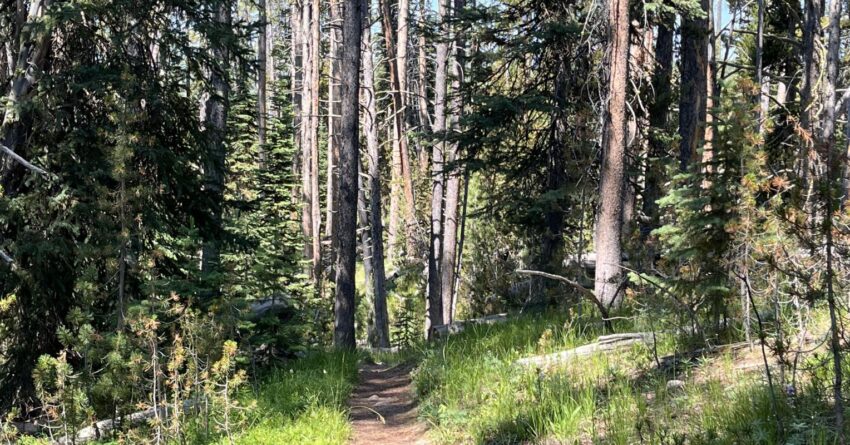“I go to nature to be soothed and healed, and to have my senses put in tune once more.” ~John Burroughs
My recent trips to Yosemite and Yellowstone National Parks reinforced that it was time to write about the benefits of spending time in nature. And yet, as remarkable as these special areas are—renown documentarian Ken Burns has described U.S. national parks as “America’s best idea”—such benefits are more easily accessible and much closer to home, wherever you may live.
The therapeutic value of being in natural environments (including parks and arboretums in urban areas) is, in some circles, even considered to be a new field of medicine. The Japanese have a specific term for the generally calming and health-enhancing experience of immersion in nature: Shinrin-yoku which translates to “forest bathing.” Shinrin-yoku can be defined as making conscious contact with and taking in the atmosphere of the forest. Forest bathing can have significant positive mental, emotional, physical, and spiritual effects that include reducing stress, lowering blood pressure, improving mood as well as sleep, and enhancing immune system functioning.[1]
While the understanding that being in nature can be beneficial is relatively ancient wisdom, research began documenting its specific health benefits only in the last two decades. A meta-analysis of 20 clinical trials found that forest bathing can reduce blood pressure—in some cases with effects that parallel anti-hypertension medications.[2] Other studies demonstrate that this practice reduces anxiety and depressive symptoms[3], while another meta-analysis indicates that connecting with nature and feeling happy are indeed connected.[4] Recent research also suggests that forest bathing is associated with decreases in the hormones implicated in metabolic disorders such as obesity and diabetes.[5]
This range of powerful positive effects correlates with changes in nervous system activity that involve deactivating the stress-based fight-flight reactions of the sympathetic division of the autonomic nervous system and activating the calming/relaxing elements of the parasympathetic division. As a result of this shift, heart rate, blood pressure, and muscle tension decrease, along with stress hormones such as cortisol and adrenaline.[6]
Natural environments—green spaces, lakes or oceans, the mountains, and the forest—are portals to present-centeredness, transporting us to an attuned awareness of the here and now, capturing our attention, and anchoring us in the moment. There are many ways in which staying in the present—in this moment, right here and right now—promotes health and healing. It frees you from the prisons created by thoughts about the past along with captivating fantasies about the future. It bestows respite from being trapped in the emotions associated with past events, such as resentment, guilt, shame, and regret, as well as those linked with the future, primarily anxiety and fear.
This is the essence of mindfulness and it helps activate the body’s relaxation response, wherein breathing slows and deepens, internal dialogue becomes less incessant, worries are less pressing, and rumination related to negative, obsessive thoughts is often significantly reduced.[7]
Forest bathing can encompass many different activities beyond hiking or even walking. Find a spot that appeals to you and sit for a while, watch the clouds, feel the sun on your face or the breeze on your skin, and simply enjoy the scenery. Or, you can read, have a picnic, or do yoga or tai chi. The purpose is to be present and connected with the natural environment.
In shifting our attention away from self-involved concerns and toward the world around us, forest bathing helps people connect more fully with what is beyond the self, imbuing us with an expanded sense of spirituality. When we connect with nature, we expand our capacity to connect with the world through an enriched awareness of the commonalities that link us all together, and a greater sense of our place as part of a much greater whole, as well as a deeper understanding that human well-being is interdependent with the well-being of the natural environment around us.
Copyright 2024 Dan Mager, MSW
